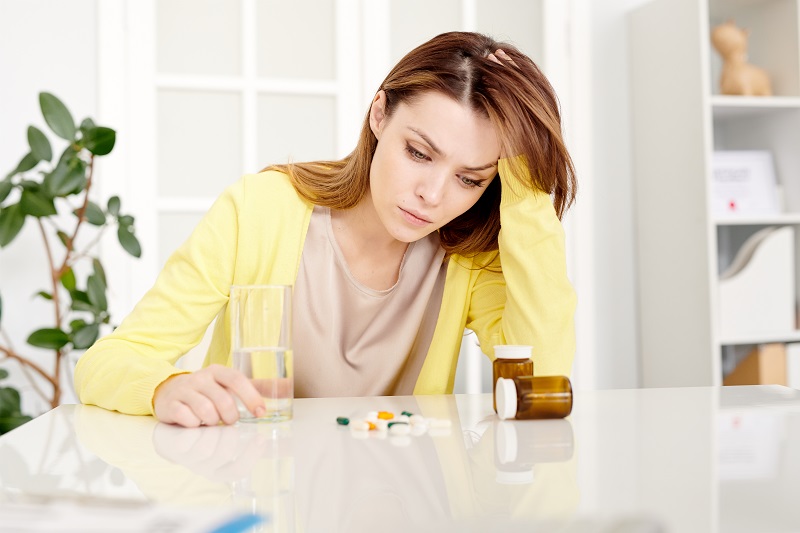
If you’re currently feeling depressed or worried at the moment, you’re not alone. The coronavirus outbreak which was first reported in Wuhan, China, is now present in more than 100 countries including the U.S. Due to the COVID-19, many schools are now closed, employees are working remotely, and other government restrictions that have dramatically put a halt to “normal” life.
These days, the new normal is “social distancing”, isolation and being mostly inside to help prevent further spread of the virus. And for people at risk, this isolation may lead to depression.
Mental health experts want to come to your rescue by offering the best tips to cope with depression during the coronavirus quarantine.
Extreme stress during the quarantine
“We know that a significant percentage of the population has a pre-existing mood or anxiety disorders and are more likely to have difficulty coping with extreme stress,” says Victor M. Fornari, MD, vice-chair of child & adolescent psychiatry at the Zucker Hillside Hospital in Glen Oaks, New York.
This also applies for others who may not have been diagnosed with depression or anxiety in the past, but now are at risk now due to financial insecurity brought on by the Covid-19 pandemic, plus the fear of getting sick or that your vulnerable friends and family will become infected, says Dr. Fornari.
Know the warning signs of depression so you can act quickly and prevent a downward spiral, adds Brittany LeMonda, PhD, a senior neuropsychologist at Lenox Hill Hospital in Manhattan.
“Feelings of sadness, difficulties getting out of bed, poor sleep (insomnia or sleeping too much), poor eating habits (under- or overeating), turning to drugs, alcohol, tobacco to cope, self-isolation/distancing more than is recommended are all red flags,” she says.
Other signs include anger outbursts, ruminative or obsessive thinking patterns, thoughts about harming oneself, or feelings of hopelessness/helplessness. “It is important for family members, friends, and coworkers to recognize these signs in high- risk groups.”
Read on to find out the best tips to cope with depression during COVID-19.

Give yourself a break
It’s OK to be not OK right now, says Robin D. Friedman, a psychotherapist at Lotus Psychotherapy in White Plains, New York. It’s normal to feel hopeless and unable to see out of this current situation, she says. “Feelings are like waves. They come and go and in these moments, we can look to the strength of others such as family, friends, neighbors and even strangers.”
Plan a virtual tea party
Groups of more than 10 people are now off-limits according to The President’s Coronavirus Guidelines for America, but you can use the technology for virtual meetings with your friends, teas or coffees for you and online play dates for your children. “Just because we need to practice social distancing doesn’t mean we need to be socially isolated,” Friedman says. “Use technology and be creative.”
Lend a helping hand
Seniors are more likely to be socially isolated, considering that they are most at risk. Also, many of the seniors are not so connected as their younger counterparts with the technology. If you want to help those in need, drop off some meals, letters, books or small gifts to put a smile on their face, Friedman suggests. “Being a helper is an important coping skill.” Here are 12 ways to help someone with depression, according to psychologists. Consider donating to a charitable organization like Meals on Wheels, a group that delivers meals to senior citizens.

Connect with a therapist
Many therapists are now moving their counseling sessions online or conducting them over the phone, says Friedman. Even if you don’t have a therapist at the moment, you should be able to identify one who offers virtual support, she says. “Mental health professionals are still working and many are taking new clients.” In some cases, medication may be needed along with talk therapy, she says.
If you are feeling overwhelmed, stressed and unable to relax during this quarantine, or feel like you want to harm yourself or someone else, call 911 or the National Suicide Prevention Lifeline at 1-800-273-TALK (1-800-273-8255).
Exercise
Exercise boosts the body’s natural supply of endorphins, which will make you feel good after and can be a powerful stress reducer, according to the American Psychological Association (APA).
“If you are able to access outdoor space, go for a walk, jog or bike ride,” Friedman suggests. It is OK to go outside as long as you don’t get within 6 feet of others.
LeMonda agrees: “At-home exercise classes streamed via Youtube or using other apps are a great way to stay in shape, boost immunity, and feel a sense of reward on a daily basis.”
Take a deep breath
There are apps that teach you how to breathe properly and many other mindfulness techniques, says Dr. Fornari. “Even if you don’t have mindfulness built into your life right now, it is useful to incorporate some into your daily routine and during stressful periods,” he says. You can try deep breathing, listening to music and practicing meditation. Find one that works for you.

Avoid unhealthy behaviors
As quarantine takes over our lives, drinking excessive amounts of alcohol, smoking, and overdoing it on fat- and sugar-laden comfort food will only make things worse. “Those who have poor coping mechanisms, such using alcohol, tobacco, or drugs to alleviate negative feelings, or those who tend to self-isolate in difficult situations may be more likely to develop depression,” LeMonda says.
“Those who also tend to alter health behaviors in the face of stress, for example, individuals who tend to over- or under-eat or those who develop poor or interrupted sleep may be more likely to experience depression.”
Eating healthy, getting regular sleep and engaging in physical activity every day are the best ways to stay strong mentally and physically during this hard time, she says.
Taking a break from the news
“Watching they news 24/7 will only worsen anxiety and depression,” Dr. Fornari says. Additionally, it is important to stay informed and know what is going on in your country, but there is no reason to keep the TV on constantly. The APA suggests identifying a few trustworthy sources, such as the federal Centers for Disease Control and Prevention (CDC), the World Health Organization and other non-sensational news media, and ignoring the rest.
Clean out your closets
Use the time at home to your advantage, LeMonda says. She suggests “at-home activities that increase feelings of efficacy are better than simply watching television,” she adds. “For example, reorganizing your closet, cleaning your kitchen, sorting through old paperwork, reading, doing crosswords, picking up a new hobby, like knitting, and cooking new recipes, are all ways that we can feel a sense of accomplishment during these times.”
Stick to a routine
Many people are used to a daily routine and don’t function well without it, Dr. Fornari says. “Get up at the same time you might if you were going to work, get ready for work and put yourself on a schedule,” he says. “Take a break and a lunch hour.” Sticking to a routine is also important for children who are now home from school.












































